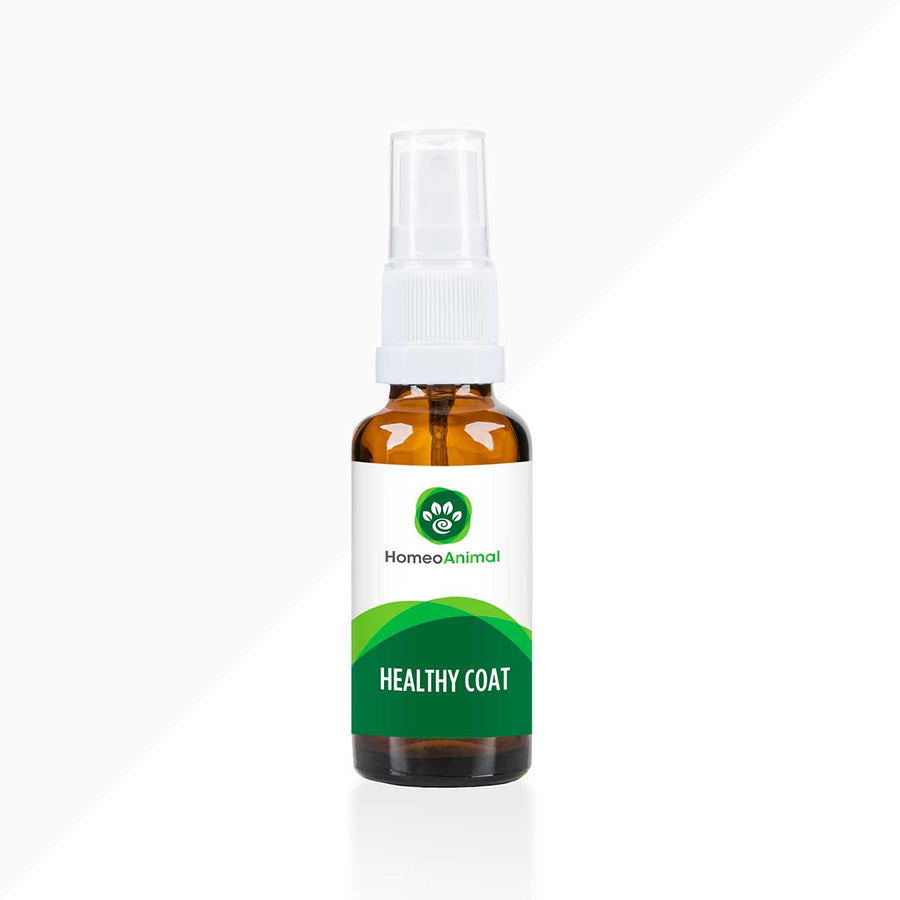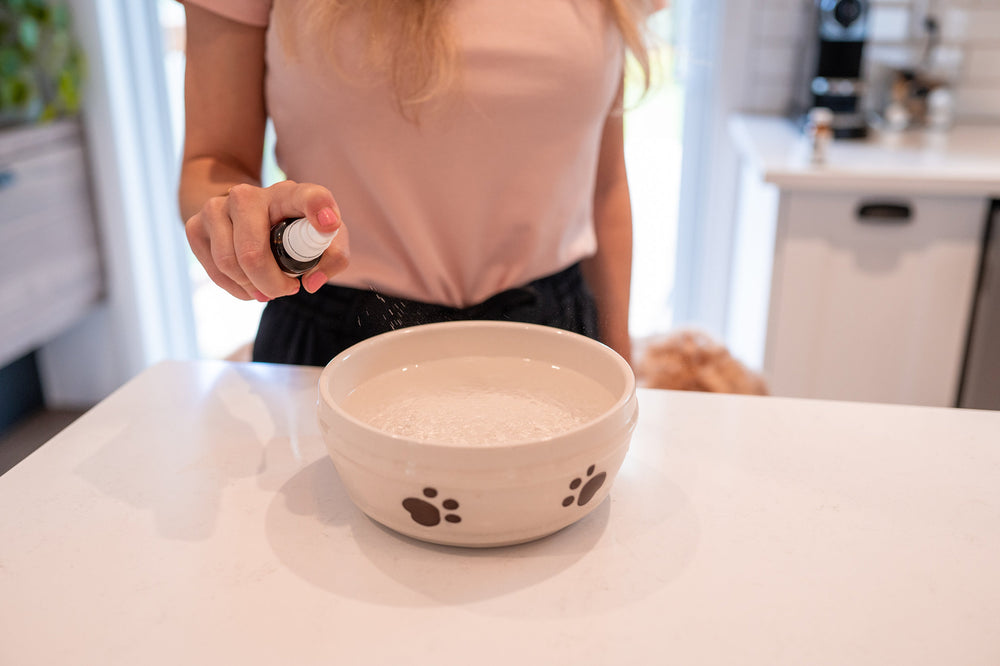Best Natural Treatments to Get Rid of Your Dog Dandruff
Not knowing how to properly deal with dog dandruff can really leave you scratching your head. Besides being unsightly and possibly resulting in hair loss in some cases, this health issue can also mean other problems affecting your dog's skin like fungal and bacterial infections.
We've put together this blog post to walk you through the important things you need to know about dog dandruff. Apart from getting you in on its symptoms and possible causes, we're also going to reveal some hassle-free tips on how to get rid of dog dandruff as we go along.
How about we start things off by having a rundown of the common signs of dog dandruff?
What are the Signs of Dog Dandruff?

Unlike what a lot of pet parents mistakenly believe, dog dandruff doesn't just involve flaky skin or white flakes on your dog's coat. There are actually other signs of this health issue that you should keep an eye on. Below you will find some commonly overlooked indicators of dog dandruff:
Excessive itching
More often than not, there are only three (3) possible reasons why your dog is persistently scratching himself:
-
First, it could be to relieve or soothe itchy skin.
-
Second, he could be trying to get rid of external parasites and other unwanted visitors that may have ended up on his coat. (This is typically seen in cases of "walking dandruff" where a pup's skin or coat is infested with mites that cause Cheyletiella.)
-
Third, your dog's skin health may be affected by bacterial or fungal infections or experiencing the effects of some other underlying cause like Cushing's disease.
If you notice that your canine best friend is suffering from irritated skin after his scratching sessions—or he is doing the same so vigorously that it already removes dead hair—it may already be a sign of dandruff or seborrheic dermatitis.
Hair loss or bald patches on your dog's fur

Did you know that your dog's coat contains very tiny glands called sebaceous glands? These sebaceous glands produce an oily substance called sebum, which could affect your pet's coat health if they are released excessively. One of these health conditions is doggy dandruff.
Excessive sebum production in canines often leads to dry skin and hair loss because the presence of natural oils is disrupted. If not properly dealt with, your dog will subsequently develop dandruff or exhibit white dandruff flakes sooner or later.
Biting or chewing on coat
Persistent coat licking or biting is frequently associated with dry skin or excessive amounts of dead skin cells. It could also be an indicator of other skin problems, like those triggered by bacterial and fungal infections, as well as food or environmental allergies. Dog dandruff is also on the list.
It is important to take note that the presence of white flakes may or may not be prominent when it comes to these cases, particularly when your dog's dandruff is still just starting or if he has rather thick fur.
Your pet's flaky skin will take on a unique oily smell
Although it is not uncommon that your dog's skin will be prone to inflammation and flakiness when he is going through skin problems, what's different in the case of dog dandruff is that it will also involve a distinct "oily" odor in certain instances like in primary seborrhea.
Can All Dogs Have Dandruff?

The short answer is yes.
All dog breeds are susceptible to dandruff and your pet's skin could be affected if you are not that familiar with ways how to keep his coat healthy. This is the reason why having a few home remedies for healthy skin in your home dog care checklist is essential.
What's interesting is that there are several types of dog dandruff. Apart from primary seborrhea and secondary seborrhea, your pooch could also be at risk of idiopathic seborrhea (very prominent in canines but quite rare in cats), seborrhea oleosa aka "oily dandruff," as well as seborrhea sicca or "dry seborrhea," which often makes a dog's armpits look really scaly.
What are the Causes of Dog's Dandruff?

Akin to other skin conditions, dog dandruff doesn't just happen.
This skin health issue is typically caused by some factor that may or may not be plain to see for pooch parents. The following are the most possible causes of dandruff in dogs:
Your dog's skin infections
Dog skin infections—particularly bacterial infections, as well as those caused by fungi and parasites—can significantly weaken the resilience of skin cells and disrupt the presence of natural skin oils. Apart from causing dry, itchy skin, they can also trigger the onset of dandruff. A veterinarian may sometimes perform a "skin scrape" to really determine the cause of the issue.
Oily seborrhea (aka excessively oily skin)
Having too much natural oils on your dog's skin can make him more vulnerable to dandruff. As we've emphasized earlier, excessive sebum production disturbs the natural skin barrier and doesn't just lead to dry skin, but can also possibly result in hair loss and even bald patches all over your pet's body.
Poor immune system health and endocrine disorders
Your dog's overall immune system plays a key role in keeping dry skin and dog dandruff in check. If your pet's immune response is not that ideal, he may be prone to skin health issues before you know it. Similarly, this can also be the case when your pooch is suffering from endocrine disorders like Cushing's disease and underactive thyroid glands or hypothyroidism.
Environmental allergies or related factors
Overly dry air, especially during the winter months, can cause dry skin in dogs. Continued exposure to dry air without any type of protection for your pooch (such as the use of a medicated shampoo) won't just lead to dry skin, but also the production of excessive oils, which is deemed a key cause of dog dandruff.
Heredity or breed
Although all dogs are prone to dandruff at some point in their lives, this skin issue is more prevalent among breeds that have medium to long hair. However, there are specific breeds that can be easily susceptible to dry skin and dandruff, namely Norfolk Terriers, Jack Russell Terriers, West Highland White Terriers, Shar-peis, Yorkshire Terriers, Cavalier King Charles Spaniels, English Springer Spaniels, Golden Retrievers, and Basset Hounds.
Your dog's diet may be causing an excessive buildup of dead skin cells
If your dog regularly loads up dog food that is very low in omega fatty acids, he could be in for dry skin and dandruff sooner or later. Fatty acids help keep the production of skin oils ideal. A no-fuss way of boosting your pet's consumption of fatty acids is by integrating sardines, mackerel, herring, and salmon with his dog food.
On the other hand, your dog can also be vulnerable to dandruff that is set off by food allergies. Some canines may be reactive to allergens that can be present in wheat gluten, soy, chicken, and dairy. To really ensure the safety of your pooch when it comes to food allergies and similar issues, it is crucial that you know which foods dogs can and cannot eat.
Is Dandruff in Dogs Permanent?

The short answer is no.
Unlike what a lot of people mistakenly think, a dog's dandruff can be easily managed with prompt care and attention. You can pull this off by administering dog dandruff treatment immediately as soon as you notice this health issue getting into the picture.
How to Get Rid of Dog Dandruff

What's really interesting is that using a medicated shampoo or other conventional dog shampoos is not just your only recourse when dandruff is concerned. How about we check out some quick home remedies for dog dandruff for this part of our discussion?
#1. Change up your pet's diet.
Integrating more fatty acids into your dog's diet can help keep dry skin and dandruff in check. Additionally, being very familiar with the foods that may give your pet an allergic reaction is also essential.
#2. Always protect your dog against the elements.
Extreme air dryness and humidity are two of the main causes of flaky skin and dog dandruff. Make sure you always give your pet the extra care and protection he deserves, especially during the winter months. Additionally, a humidifier works by "pulling" moisture from the air. It is really handy during hot summers and the winter season.
#3. Regular bathing and grooming are a must.
Bathing and grooming your dog on a regular basis is crucial since it not only helps get rid of dirt and grime but also removes any external parasites like Cheyletiella mites that cause "walking dandruff." However, it is important to remember not to use human shampoos for this application.
#4. Avoid situations that may be stressful to your dog.
Stress and anxiety can disrupt your dog's ideal hormone levels and may lead to dry skin and canine dandruff. A great way of preventing stress and anxiety in dogs is by having a regular schedule where you can mentally stimulate your pooch.
A Natural Way to Treat Dog Dandruff You Should Consider

Zumalka's HEALTHY COAT is designed to support the overall health and appearance of your pet's coat. This premium natural product is also formulated to maintain your dog's immune response so he won't be an easy target for disease and illness.
HEALTHY COAT is one option you should consider including in your home pet care checklist to help your dog keep clear from dandruff.







Leave a comment